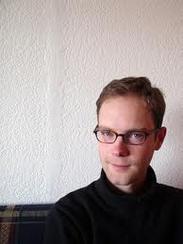|
One of the underlying themes in my current book is our obsession with fame. We feast on media darlings and know more about Hollywood starlets than some of our friends. We follow the famous on Twitter and read blogs by people we see on TV. There are more ways than ever to become famous, or as a recent Globe and Mail article calls it "microfamous."
Way back in 2008, New York Magazine published an article with eight easy steps on how to achieve microfame through the use of social media. We've all heard stories of people who made a name for themselves through blogs or YouTube videos, and maybe we are the fools if we haven't tried to raise our profiles by garnering more YouTube hits than anyone else. But there's a price to be paid for fame, and that includes microfame. The famous lose their privacy and in my book I argue that they loose a sense of who they really are. Famous people understand that it is the image they project that attracts legions of fans. So they'll protect their images with lawsuits (the Royal Family going after the paparazzi in France, for example) and manage their appearances with the stealth of a military exercise. At the same time, they try to shield their families and personal lives from the glare of the spotlight. However, this separation of public self and private self has become almost impossible to maintain. With reality TV shows, Twitter accounts and open doors into their cribs, celebrities have allowed the public to go beyond the curtain, as it were. And once that happens, there is no going back. Blame it on our appetites, but it is precisely because the microfamous are so willing to overshare (what they eat, how often, with whom, ad nauseum) that we have come to expect an inside look into anyone's life. It is because we watch the Kardashians and others who have no talent other than packaging their lives for TV that we come to expect everyone to have a public image in the form of a YouTube channel, Twitter account or blog (yep, that mirror is reflecting back at me). In the Globe and Mail article, Sarah Nicole Prickett wrote: "For artists, especially, the only way to not be used by the Internet is either to not use it, which is ridiculous, or to make something out of it. Later, you can worry about what it makes you." And that gets me back to my thoughts in the book. We don't know until afterwards what fame makes of us. We can't tell going in that our legs will be talked about more than our talent, that our mistakes will be remembered long after our successes or that the carefully packaged image we created of ourselves at 21 will strangle us like an ever-tightening scarf. Yesterday, I attended the Victoria Writers' Festival. In its first year, it attracted a number of local authors, who spoke about their work. One of the most refreshing aspects of the panel called The Young and the Restless was the fact that the moderator was unable to find any personal details about short story writer Craig Boyko on the Internet. Even his book jackets envelop him in mystery. That's Craig's picture at the top of this blog (taken from the VWF site), and I'm betting very few people did recognize him. My question is: what's wrong with that? As writers, it's our words that should make an impact. For someone like Craig, his four nominations for the Journey Prize tell us what we really need to know. Kudos to him for keeping a large distance between his public and private personas. I applaud his determination to keep the focus on his stories, whether that be as a result of shyness or an unwillingness to play the fame game or something else. Who knows? And do we really need to?
0 Comments
Leave a Reply. |
|

 RSS Feed
RSS Feed